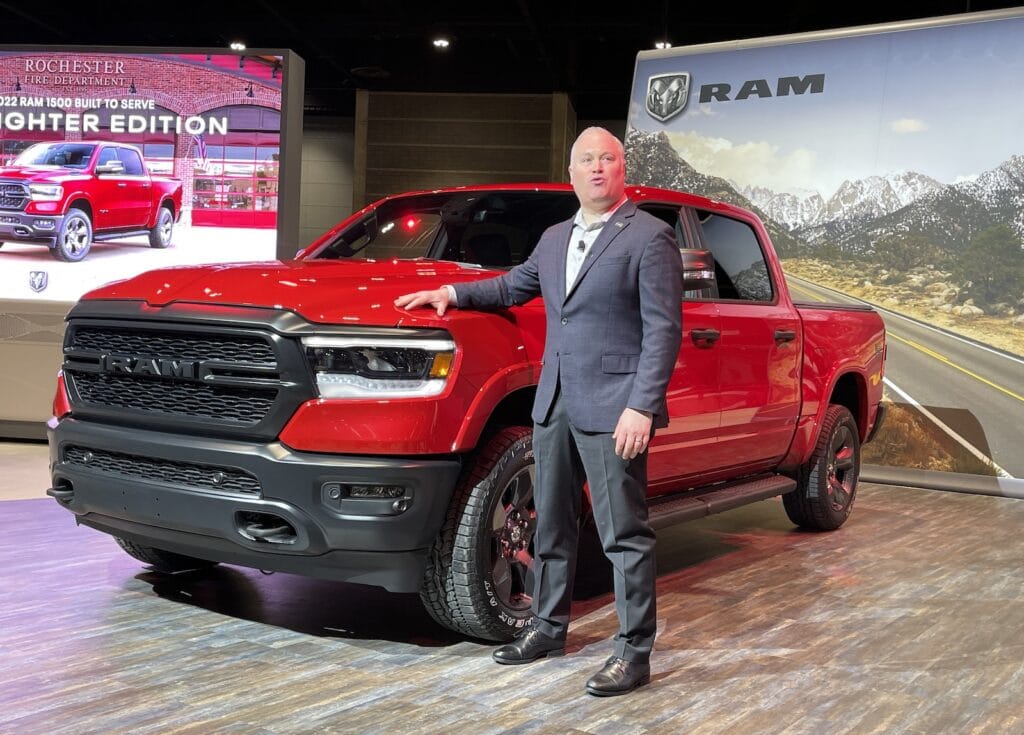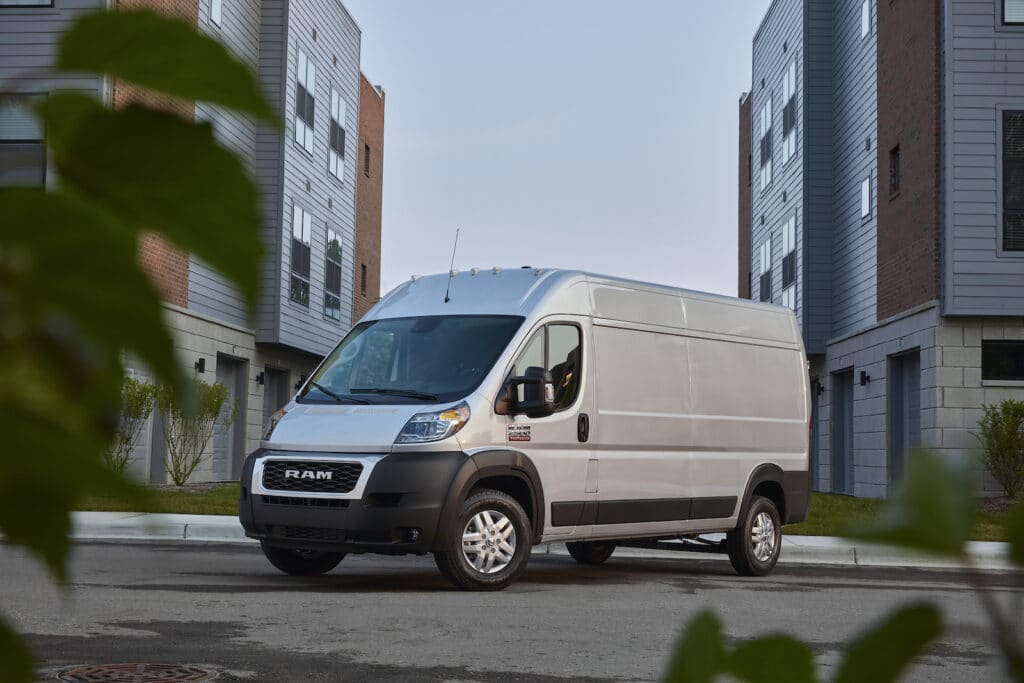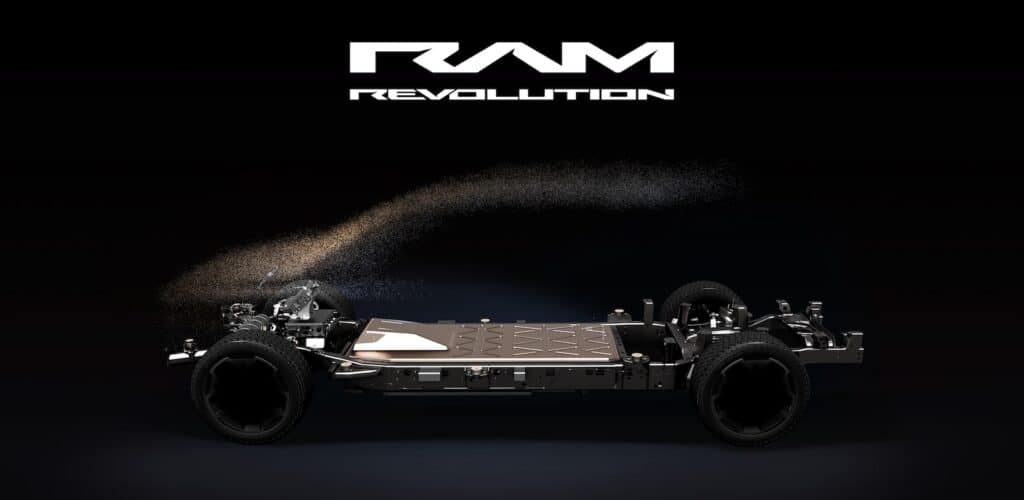Sales of battery-electric vehicles nearly doubled in 2021 and are expected to post another big jump this year, as a flood of new products comes to market. And while retail customers will have plenty of new options, it’s the fleet and commercial side of the BEV market likely to grow fastest, according to the head of the Ram brand.

Like the other brands that were part of the old Fiat Chrysler Automobiles, Ram has been slow to bring BEVs into its portfolio, but that’s about to change now that FCA has merged with the PSA Group to form Stellantis. During the past month, it not only revealed plans to launch an all-electric version of the Ram 1500 pickup, but announced that Amazon’s Prime delivery service will acquire thousands of new, all-electric Ram ProMaster vans.
The commercial BEV market “has accelerated very quickly over the last couple of years,” Mike Koval, the CEO of the Ram brand, told TheDetroitBureau.com in an interview, adding that “There are a lot of benefits in the commercial space.”
Demand ramps up
Amazon has already begun taking delivery of what will be 100,000 all-electric delivery vans from Rivian. Ford and General Motors are readying new light commercial EV vans of their own, and an assortment of other automakers, both legacy and start-up, are entering the segment.
Significantly, GM’s Chevrolet brand announced in January the first version of the Silverado EV will target commercial customers when it comes to market in early 2024. Retail buyers will have to wait until later that year.

There are a variety of benefits, as Ram’s Koval points out, winning over commercial buyers. Lower energy costs are a prime reason. Depending on the rates they negotiate with utilities, fleets are generally expected to pay less than half as much per mile for electricity as they do for gas or diesel. And with no need for tune ups or oil changes, BEV trucks are expected to have not only significantly lower operating costs but less down time.
Overcoming the drawbacks
There are some drawbacks, Koval cautioned. Even the best of today’s batteries still have range limitations and take significantly longer to charge than it takes an operator to fill up a gas tank.
With the new Ram 1500 EV, the Stellantis truck brand hopes to minimize buyer concerns with a version of the truck it has dubbed the REPB, or Range Electric Paradigm Breaker. Koval declined to offer details about the system that is widely believed to be a range-extender option. Speculation centers on a possible gas-powered generator that might be mounted in the pickup’s bed. It would kick in when the battery pack gets low to keep sending power to the BEV’s wheels.

The approach is different from a plug-in hybrid in that the Ram 1500 EV’s wheels will only ever draw power from its electric motors.
Seeking solutions
According to Koval, the REPB option will not be limited to the Ram 1500. And, indeed, it is developing a wide range of battery-powered models. As part of what he called the “Ram Revolution,” the brand will have “fully electrified solutions in the majority of our segments by 2025,” the executive said last week during an appearance at the Chicago Auto Show. The goal is to expand that to all Ram products by 2030.
While there has been growing interest in commercial BEV trucks, especially since Ford debuted the F-150 Lightning last year, Koval stressed that potential customers still are cautious. “They’re not willing to sacrifice on the core capabilities,” including power and range, he said during his interview.
To get a better feel for what buyers want, Ram is staging a series of meetings with current and potential owners during the coming year. They’ll likely be the first to get a look at a functioning prototype of the Ram 1500 EV, Koval revealed, adding that the electric truck will make its public debut later this year.







